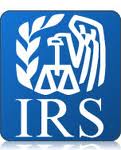If you owe back taxes to the IRS an installment agreement is one of the most common methods used to make payments to the IRS. A monthly general plan is usually the simplest way to set up an arrangement to pay off any taxes owed to the Internal Revenue Service. Even if you are filing your taxes and you cannot pay the entire amount owed, you can send an installment agreement form with your tax return. IRS installment agreements are usually easy to obtain when the amount owed is $25,000 or less. That being said the IRS has four types of installment agreements. Below is a description of each one:
Guaranteed Installment Agreement: This is definitely the simplest installment agreement. It is for someone who owes $10,000 or less to the IRS. However, one must fit the following criteria:
- Have not filed late or paid late in the last five years.
- All of your taxes are filed.
- Your monthly installments will pay off your balance within 36 months.
- You will file and pay your taxes on time from now on.
The biggest advantage of this type of installment agreement is that the IRS will not file a federal tax lien.
Streamlined Installment Agreement: This type of plan is designed for individuals who owe $25,000 or less to the IRS and it must be paid off in 60 months or less.
However, effective on March 7th, 2012 taxpayers who owe $50,000 or less and can pay off the balance in 72 months or less are also included due to the expansion of the Fresh Start Initiative.
The biggest plus to the streamlined installment agreement is that a federal tax lien is not required. However, all your tax returns from must be filed, and you acknowledge to file your returns on time and as well pay your taxes on time in the future.
Partial Payment Agreement: This type of agreement works best when the guaranteed or streamlined installment agreements do not work for you. This is a type of payment arrangement that is based on what you can afford after a review of your living expenses. Unlike, the guaranteed or streamlined installment agreements, partial payment agreements can be set up to cover a longer repayment term. However, the IRS could file federal tax lien. Also, this type of agreement will need to be reevaluated every two years to see if you could pay more money. (https://store.spaceylon.com/)
“Non-Streamlined” Installment Agreements: If none of the above installment agreements work for you then you will need to negotiate your own installment agreement with the IRS. Usually this is the case if you owe $25,000 or more, if you need longer than 5 years to pay off the balance, or if you do not meet any of the criteria for a streamlined or guaranteed installment agreement.
This type of agreement is negotiated directly with the IRS agent and IRS manager. The IRS will most likely file a federal tax lien. You will also need to fill out a financial statement with additional financial information for the IRS to review.
If you have tax debt you are unable to pay or any other questions our tax settlement professionals are happy to discuss you’re tax resolutions free of charge. For more information about our services, visit us today at www.professionaltaxresolution.com. With over 16 years in the business of resolving tax debt, we have a thorough understanding of tax law together with the experience to know which settlement option will be the best fit for your specific set of circumstances.
For more information about our tax debt resolution services visit us at www.professionaltaxresolution.com. Contact us by phone at 877.889.6527 to receive a free, no obligation consultation.





